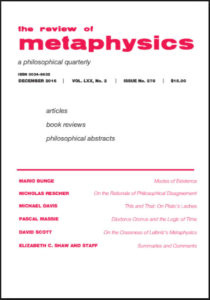
Adobe PDF Brochure for the Book
Description
Uniting Mississippi applies a new, philosophically informed theory of democratic leadership to Mississippi’s challenges. Governor William F. Winter has written a foreword for the book, supporting its proposals.
The book begins with an examination of Mississippi’s apparent Catch-22, namely the difficulty of addressing problems of poverty without fixing issues in education first, and vice versa. These difficulties can be overcome if we look at their common roots, argues Eric Thomas Weber, and if we practice virtuous democratic leadership. Since the approach to addressing poverty has for so long been unsuccessful, Weber reframes the problem. The challenges of educational failure reveal the extent to which there is a caste system of schooling. Certain groups of people are trapped in schools that are underfunded and failing. The ideals of democracy reject hierarchies of citizenship, and thus, the author contends, these ideals are truly tested in Mississippi. Weber offers theories of effective leadership in general and of democratic leadership in particular to show how Mississippi’s challenges could be addressed with the guidance of common values.

BUY IT FROM SQUARE BOOKS of Oxford, MS
Endorsements
“The words ‘philosophy’ and ‘practical’ are rarely used together. Using the challenged state of Mississippi as an example, Professor Weber offers clear guidance on how inspired democratic leadership can bring about needed change. There are pearls of wisdom here for both the scholar and the aspiring leader.”
— Daniel W. Jones, MD, professor of physiology and medicine, former dean of the School of Medicine, and former chancellor at the University of Mississippi
“I am often in conversation with groups and individuals around the state who are working hard to improve the lives of Mississippians. Some of the greatest needs in that work are an understanding of our history, the need for a common language to describe where we are in that history, and the creation of a community of practice that shares best practices and ideas. Dr. Weber’s book is an excellent start for supporting this crucial work.”
— Susan Glisson, executive director of the William Winter Institute for Racial Reconciliation at the University of Mississippi
“This book is the beginning of a desperately needed conversation in Mississippi about the future of the state. It addresses an issue that nearly everyone is aware of–the need for high quality education for Mississippians–with an understanding that it must precede rather than flow from economic growth. Anyone interested in education policy in Mississippi should read and consider the case for education in this book.”
— Robert Mellen, Jr., assistant professor and undergraduate coordinator at Mississippi State University
“Book Shows Way Out of Catch-22.”
— Bill Minor, The Clarion Ledger, October 15, 2015.
“Weber moved here eight years ago to teach at the University of Mississippi. Trained in philosophy, he teaches public policy and has mined thinkers ancient and contemporary — particularly Plato and John Dewey — to develop his definition of good leadership. ‘Judicious yet courageous guidance,’ he puts it, a definition from which he draws four cardinal virtues: wisdom, courage, unity and justice. Those are big words, almost fuzzy in their scope. What leader, after all, wouldn’t want some wisdom? But, chapter by chapter, Weber describes the public policies that should emerge from such virtuous beginnings, and the contrast between theory and practice reveals a shortage of each virtue in our local politics.”
— Boyce Upholt, The Clarion Ledger, December 20, 2015.










 The goal of this book is to present an experimentalist approach to the problems of ethics in public policy grounded on John Dewey’s philosophy. Leaders in public policy face some unique challenges regarding the framing of problems, policy prioritization or agenda setting, as well as challenges of addressing the concerns of citizens who hold to conflicting religious and moral doctrines. This book is intended for students and leaders in public policy and for philosophers interested in how leaders in public matters can fuse the many important moral considerations that must be addressed in public settings concerning policy.
The goal of this book is to present an experimentalist approach to the problems of ethics in public policy grounded on John Dewey’s philosophy. Leaders in public policy face some unique challenges regarding the framing of problems, policy prioritization or agenda setting, as well as challenges of addressing the concerns of citizens who hold to conflicting religious and moral doctrines. This book is intended for students and leaders in public policy and for philosophers interested in how leaders in public matters can fuse the many important moral considerations that must be addressed in public settings concerning policy. Review in The Journal of Speculative Philosophy
Review in The Journal of Speculative Philosophy





 About Me
About Me